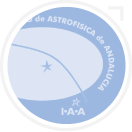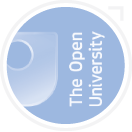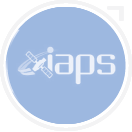CNRS - Centre National de la Recherche Scientifique
The Institut Pierre-Simon Laplace (IPSL) is the department of CNRS responsible for this project. IPSL comprises 6 laboratories (LATMOS, LISA, LMD, LOCEAN, LPMAA, LSCE) whose research topics concern the global environment. These laboratories are developing a common strategy for the study of the Earth System as a whole and for the study of other objects in the solar system. Its main objectives are to:
-
understand the dynamical, chemical and biological processes at work in the oceans and in the atmosphere, and the processes of exchange of matter and energy between the atmosphere, oceans and biosphere, and in particular to understand the water and carbon cycles;
-
understand the natural climate variability at regional and global scales, together with the past and future evolution of our planet;
- understand the impacts of human activities on the ozone layer and on the climate, and to predict climate at seasonal and inter-annual scales (monsoon, El Niño, North Atlantic Oscillation) and the horizon of the end century;
- use our skills on the terrestrial environments to explore other planets
The IPSL laboratories set up, at federal level, common services and major scientific projects to serve its scientific strategy.
-
A unit dedicated to climate modelling studies the natural variability of Earth climate and the anthropogenic influence on it. It develops a numerical model that couples atmosphere, ocean, continental surfaces and atmospheric chemistry models developed in the IPSL laboratories.
-
A data centre provides IPSL teams with data. At national level, it is responsible for the ETHER data centre on atmospheric chemistry and participates in the centre of expertise ICARE specialized in the study of aerosols and clouds.
-
IPSL is responsible for several observation services (monitoring of stratospheric ozone, of greenhouse gases and of carbon flux in the ocean and atmosphere) and modelling services (ocean and air pollution) as well as of an instrumental site labelled by INSU / CNRS.
-
The "Solar System" unit aims at understanding the formation, dynamics and long-term evolution of the neutral and ionized atmosphere of the Earth and of the planets, and their interaction with the solar wind.
- The "Group for regional climate and environment studies" is interested in the water cycle and in the medium-scale processes involved in this cycle.
- The Centre for Innovation and Space Instrumentation develops innovative instrumentation (remote sensing for space observations, airborne and ground-based measurements) and instrumental simulators
The Laboratoire Atmosphères, Milieux, Observations Spatiales (LATMOS) is a new research unit, created on January 1st, 2009, gathering former activities developed by Service d'Aéronomie and by more than half of Centre d'étude des Environnements Terrestre et Planétaires. LATMOS is part of Observatoire des Sciences de l'Univers de l'UVSQ. LATMOS is the PI institute of the SPICAM instrument onboard Mars Express and has a long- standing collaboration with LMD on the study of Mars climate by means of theoretical models.
![]()
Distribution of the water vapor in Mars atmosphere for about two martian years function of the latitude measured by SPICAM
Infrastructure
The UPWARDS IPSL team will benefit from the excellent working environment of the IPSL building on the Universite Pierre et Marie (UPMC) Jussieu Campus in Paris and of the recent IPSL building in Guyancourt, in the suburb of Paris. This includes state of the art computer facilities in both research centres. In addition, for computer intensive projects such as global climate modelling, data assimilation and large dataset processing, the team has access to a hierarchy of computing clusters such as the IPSL-led CICLAD centre126 (352 cores), the UPMC GNOME centre (800 cores) or the various super computers freely available at the CNRS national “Institute for Development and Resources in Intensive Scientific Computing” (IDRIS)

































